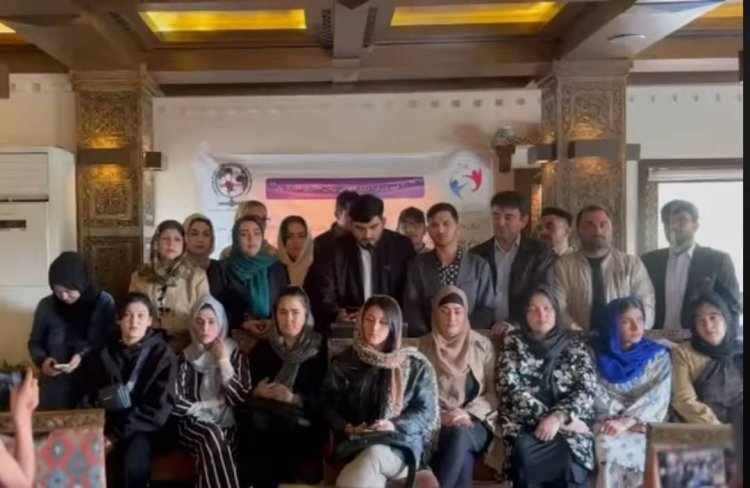International Mother Language Day: challenges facing native and major languages in Afghanistan

ISLAMABAD – A group of Afghan civil activists in Islamabad have raised concerns over the increasing threats to indigenous languages in Afghanistan on the occasion of International Mother Language Day. During a gathering held to mark the day, they emphasized that Persian and other local languages in Afghanistan face a systematic threat of elimination and weakening under the Taliban regime.
These activists stated that the loss of a language equates to the loss of a culture and that the continuation of such policies could push Afghanistan into an identity crisis. They called for the preservation of mother languages and resistance against linguistic discrimination.
The United Nations Educational, Scientific and Cultural Organization (UNESCO) has designated February 21 as International Mother Language Day to promote linguistic and cultural diversity and their preservation.
In a message posted on social media platform X, UNESCO reiterated its belief in the importance of linguistic and cultural diversity for sustainable societies. The organization highlighted its commitment to preserving cultural and linguistic differences, which foster tolerance and mutual respect.
International Mother Language Day is observed to support over 6,000 living languages worldwide. However, UNESCO has warned that linguistic diversity is under threat, with many languages facing extinction. According to UNESCO, 40% of the global population lacks access to education in their native language. The organization has also reported that 250 million children and adolescents worldwide are deprived of education, and 736 million adults lack basic literacy skills.
Afghanistan, known for its rich linguistic diversity, faces serious literacy challenges, with over 70% of its population unable to read or write. More than 30 native languages are spoken across the country, with Dari and Pashto as its official languages. Other languages, such as Uzbeki, Turkmen, Balochi, Pashayi, Nuristani, Pamiri, and many others, are spoken in different regions.
UNESCO asserts that multilingual and multicultural communities sustain themselves through languages, which serve as a means of transferring and preserving traditional knowledge and cultural heritage. However, data from UNESCO reveals that 23 languages in Afghanistan are at risk of extinction, with at least 12 spoken exclusively within the country.
Reports indicate that several languages, such as Mongolic and Turkic languages once spoken in Afghanistan, have nearly vanished. Pamiri languages in Badakhshan and the Uyghur language in Logar are also under severe threat.
Experts believe that incorrect language policies, the lack of education in native languages, and neglect of local dialects are key factors endangering indigenous languages.
Since the Taliban's takeover of Afghanistan, concerns over the extinction of native languages have grown. The regime has removed Persian words from official signs, including those in government offices, universities, and hospitals.
Last month, the Taliban barred Uzbeki and Turkmen language graduates from registering for government job examinations. Additionally, the group has destroyed statues and images of several Persian-speaking poets in various cities. In February 2023, they demolished the statue of Amir Ali Shir Nava'i in Mazar-e-Sharif.
In May 2022, the Taliban removed the Persian language from the sign of the Supreme Court and replaced it with Pashto and English. Similarly, in October 2022, they changed the sign of Takhar University, which had been written in Persian, Pashto, English, and Uzbeki, replacing it with a sign only in Pashto and English.
In March 2022, the Taliban removed the Persian word "Daneshgah" (university) from the sign of Balkh University, replacing it with "Pohantoon," the Pashto equivalent.
Cultural activists warn that the Taliban’s language policies pose a significant threat to Afghanistan's linguistic and cultural diversity.
